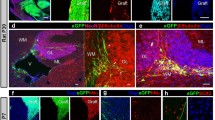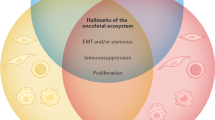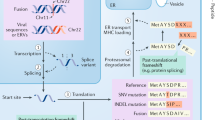Abstract
The tumour specific antigens and tumour associated embryonic antigens expressed on chemically induced rat hepatomata and sarcomata have been shown to be different by means of blocking antibody studies. Serum from multiparous female rats contained blocking antibody which protected both tumour and embryo cells from the in vitro cytotoxic effect of lymph node cells from multiparous donors. These sera did not, however, block the cytotoxicity of lymph node cells from tumour immune rats for cells of the immunizing tumour. In addition, the tumour specific rejection antigens and embryonic antigens have been shown to have dissimilar locations in tumour cells.
This is a preview of subscription content, access via your institution
Access options
Subscribe to this journal
Receive 24 print issues and online access
$259.00 per year
only $10.79 per issue
Buy this article
- Purchase on Springer Link
- Instant access to full article PDF
Prices may be subject to local taxes which are calculated during checkout
Similar content being viewed by others
Rights and permissions
About this article
Cite this article
Baldwin, R., Glaves, D. & Vose, B. Differentiation Between the Embryonic and Tumour Specific Antigens on Chemically Induced Rat Tumours. Br J Cancer 29, 1–10 (1974). https://doi.org/10.1038/bjc.1974.1
Issue Date:
DOI: https://doi.org/10.1038/bjc.1974.1



